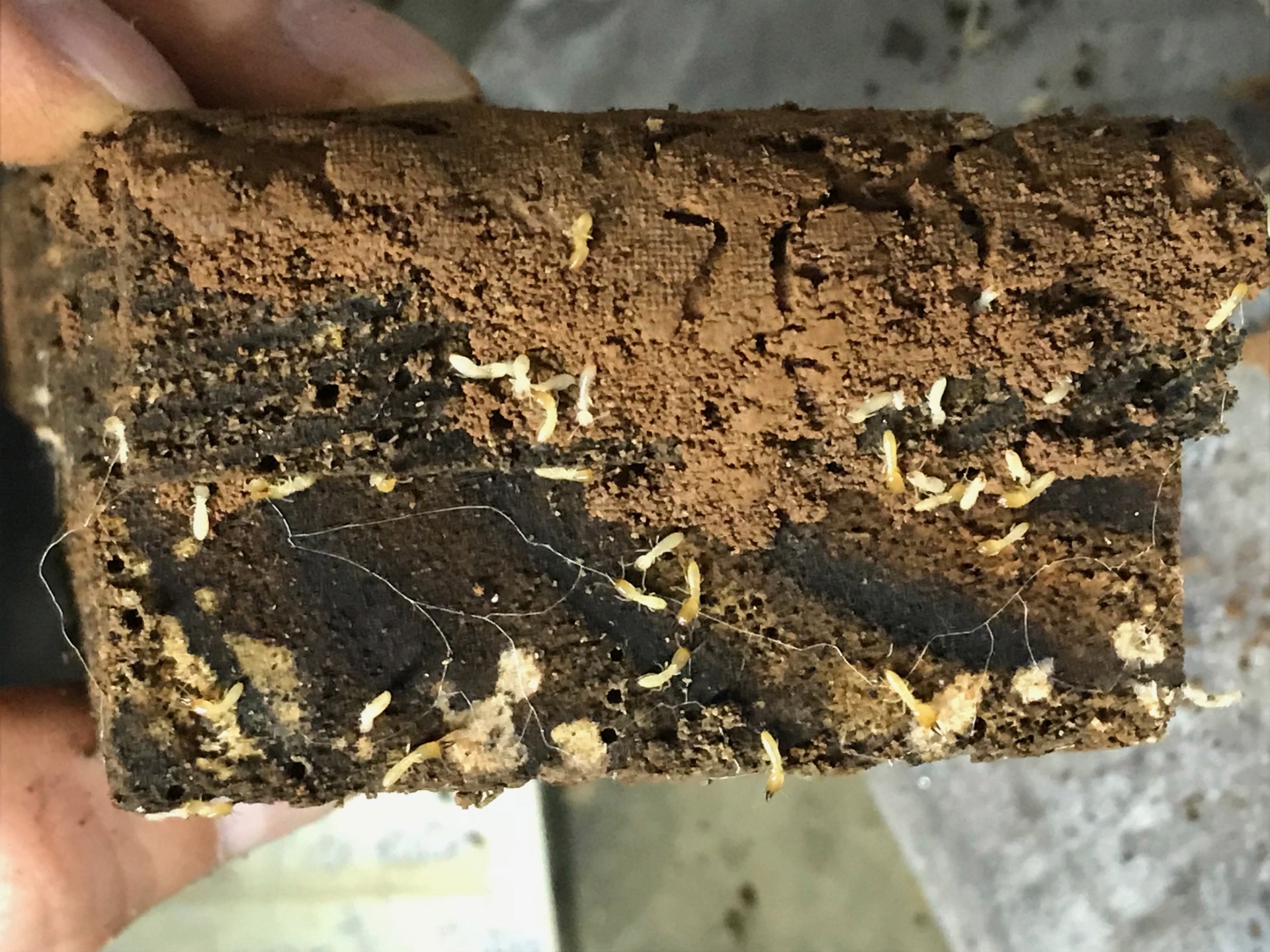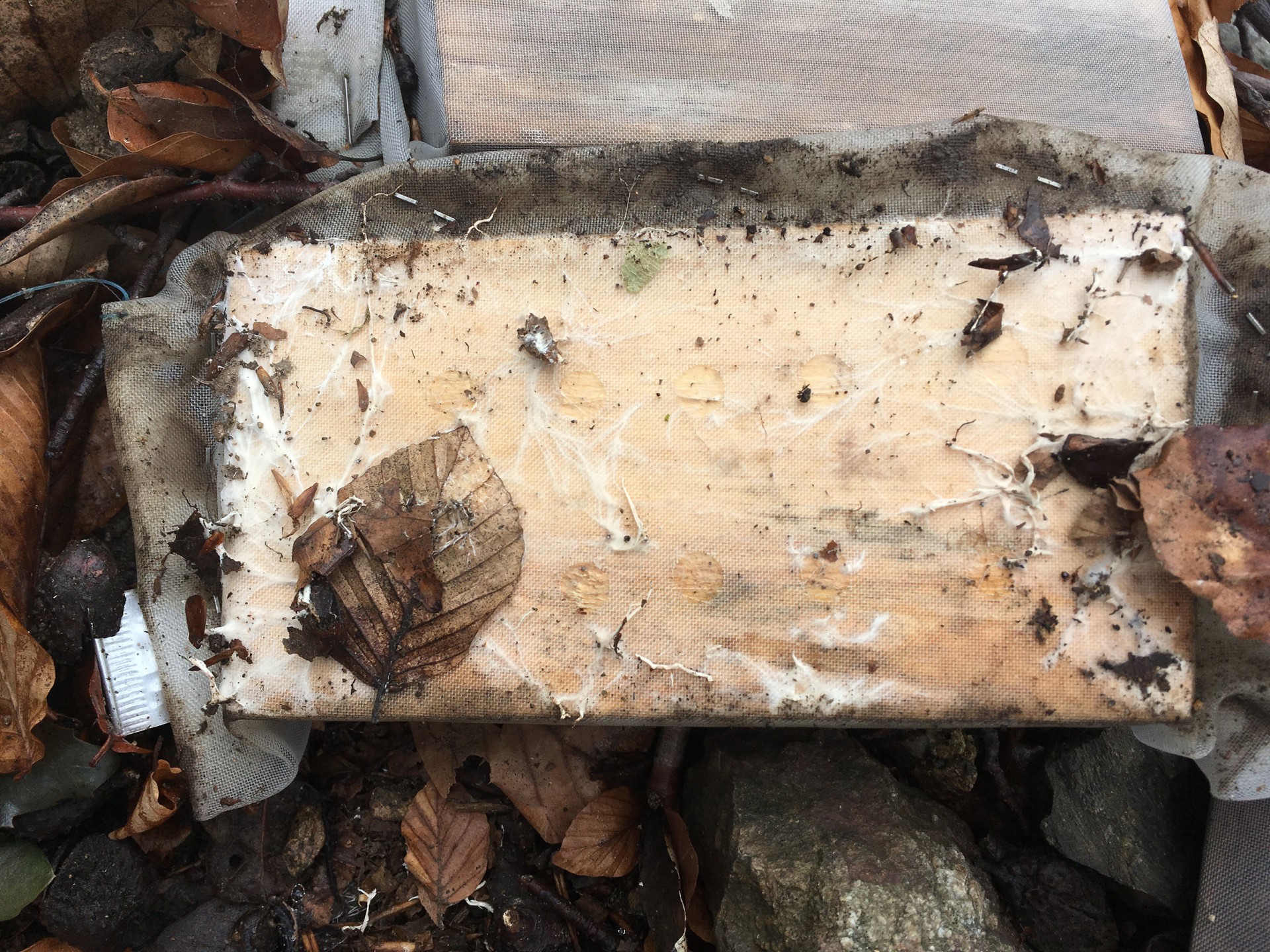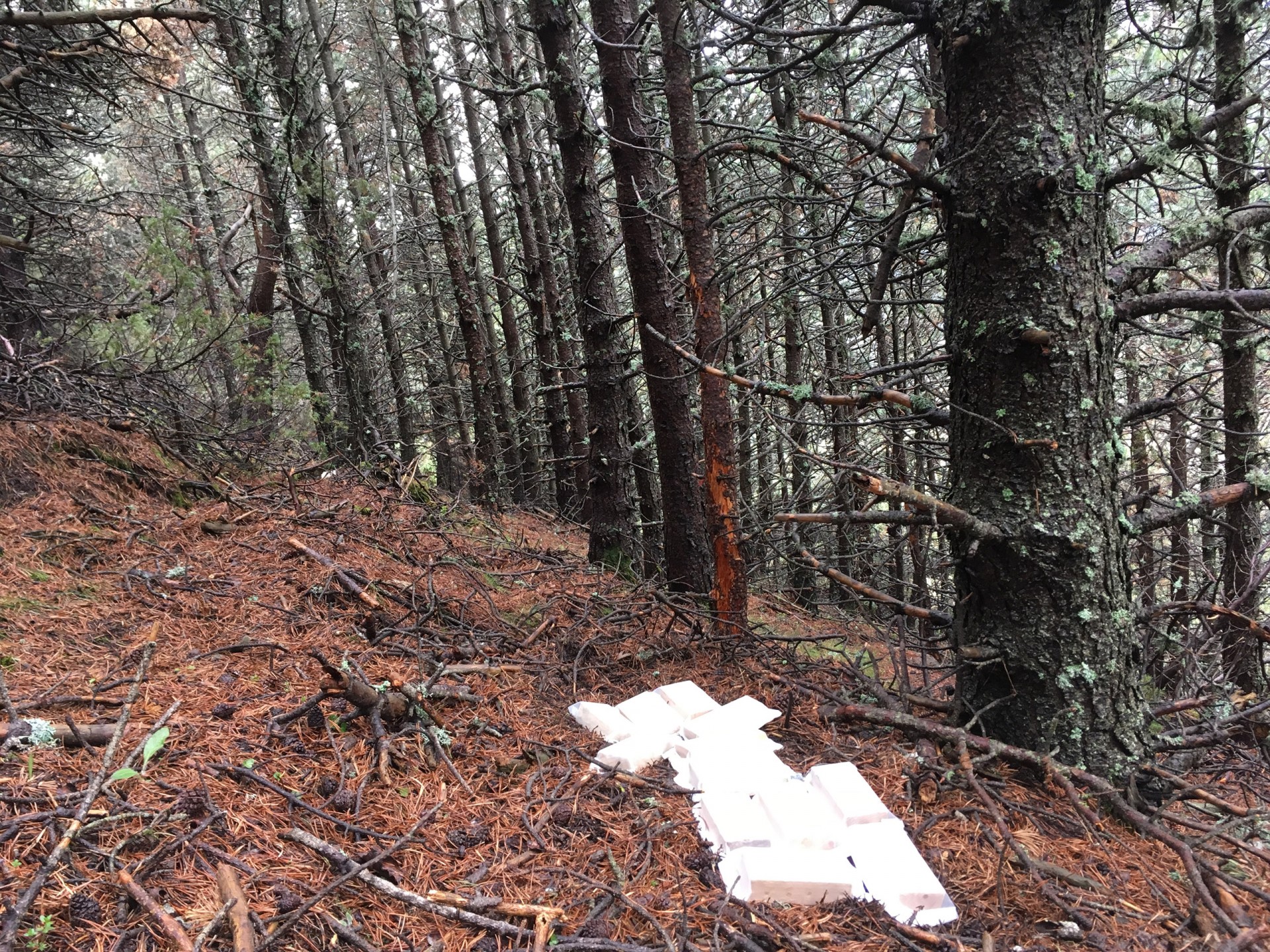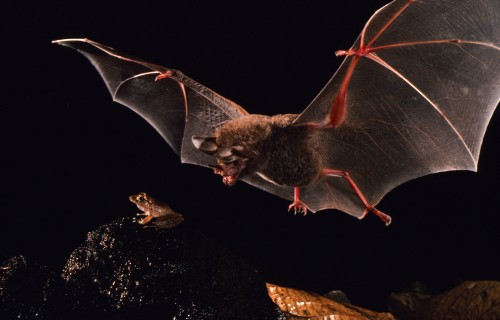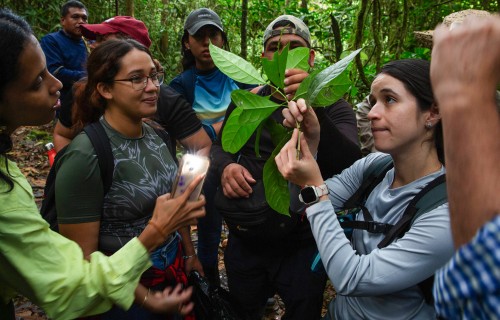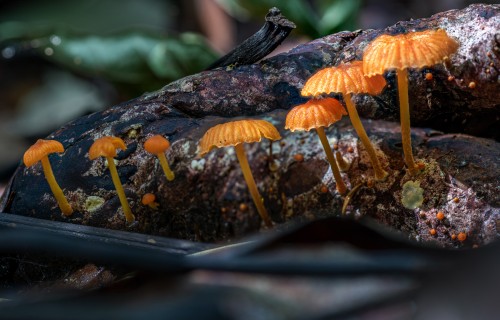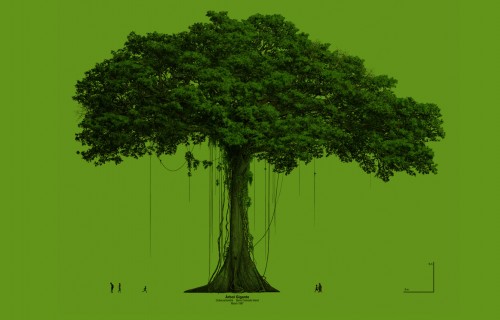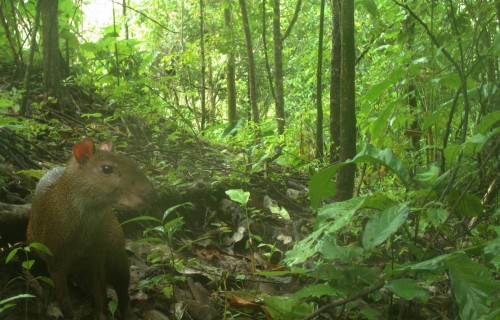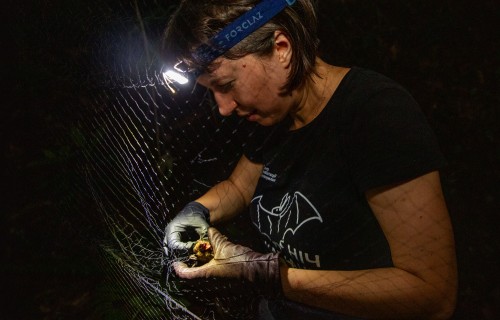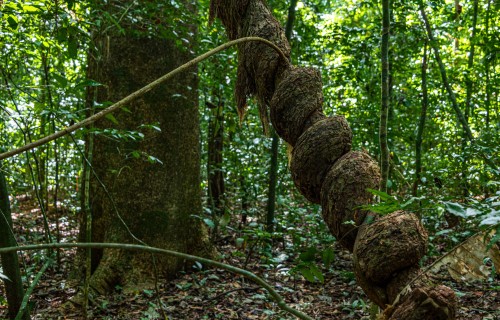Q?Bus begins its
journey around
Panama
Wood
eaters
Termites could play an important
role in climate change
Adapted from University of Miami press release
A study spanning six continents explored the role of termites and microorganisms in wood decay.
Most people think termites are a nuisance that consume wood in homes and businesses. But these termites represent less than 4 percent of all termite species worldwide.
Termites are critical in natural ecosystems—especially in the tropics— because they help recycle dead wood from trees. Without such decayers, the world would be piled high with dead plants and animals.
Co-author Camilo Zalamea in the Barro Colorado Island field site in Panama. Credit: Jorge Alemán, STRI.
New research involving scientists associated with the Smithsonian Tropical Research Institute (STRI), along with more than 100 collaborators across the world, revealed that termites could soon have a major global impact due to climate change.
“How much carbon is stored in wood heavily depends on wood decay rates and we know that wood decay rates vary across climatic gradients and ecosystems,” said Camilo Zalamea, research associate at STRI and assistant professor at the University of South Florida. “Regional studies have previously shown that wood decay rates by microbes double with a 10°C temperature increase, but prior to the publication of our article, less was known about the climate sensitivity of other essential players in wood decay like termites.”
Led by University of Miami biology professor Amy Zanne and published in Science, the study conducted wood decay experiments at 133 sites in 20 countries and six continents, including Barro Colorado Island, the Fortuna Forest Reserve and Baru Volcano in Panama. One of their findings was that termites are very sensitive to temperature and rainfall and that their activity could increase, even more than that of microbes, as the earth becomes warmer and drier.
Global wood block decay experiments in the Barro Colorado Island tropical rainforest in Panama. Credit: Carolina Sarmiento.
"Termites had their biggest effects in places like tropical savannahs, seasonal forests and subtropical deserts," Zanne said. "With temperatures warming, their impact on the planet could be huge."
Although microbes and termites both decompose dead wood, there are important differences between them. Microbes need water to grow and consume wood, whereas termites can function at relatively low moisture levels.
Wood block decay experiment at a site in the Mediterranean basin in the Pyrenees. Credit: Guillermo Peguero.
“Microbes are globally important when it comes to wood decay, but we have largely overlooked the role of termites in this process,” Zanne added. “This means we are not accounting for the massive effect these insects could pose for future carbon cycling and interactions with climate change.”
Like tiny cows, termites release carbon from the wood as methane and carbon dioxide, which are two of the most important greenhouse gases. Therefore, with climate change and increased termite activity in the future, they could increasingly contribute to greenhouse gas emissions.
Wood decay experiments were conducted in the Panamanian cloud forests of Volcan Barú and Fortuna Forest Reserve. Credit: Jim Dalling.
“With current global change trends where we expect warming shifts to tropical climates in many areas around the planet, the effect termites could have on wood decay is likely to increase as termites are predicted to have access to ecosystems where they are not currently present,” said Zalamea.
An example of this is the expansion and increased abundance of termites in ecosystems such as those with a Mediterranean climate, which are currently becoming "tropicalized".
"In our research sites in the Mediterranean basin the rates of decay by termites were much lower than those we have seen in tropical regions such as Panama," said Guillermo Peguero, post-doctoral researcher at STRI who also participated in the study. "However, our results suggest that this could change in the future, which could lead to very considerable changes in the carbon balance of the entire biosphere."
Reference: https://www.science.org/doi/10.1126/science.abo3856


